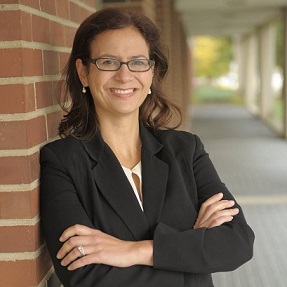As part of the fair use and fair dealing week, IFLA is delighted to welcome Eric Chin, from the General Counsel at the National Library Board of Singapore, to share his views on the importance of making the best use of the flexibilities provided by the fair use and fair dealing provisions.
- Your mission as a librarian is to enable teaching, learning and research. How much you can achieve depends on the extent to which libraries can collect, preserve, give access, present and exhibit library materials. This in turn depends a lot on copyright laws that govern how library materials can be used.
- For example, one of the exclusive rights of a copyright owner is the right to make a copy. This impacts your day to day work ranging from the request by a teacher to make a copy of a photograph for a lesson, to whether the much used book that is deteriorating and is out of print (but still in copyright) can be digitised to preserve the content from being totally lost, to whether a video in an obsolete format (but still in copyright) can be migrated to a new digital format; and to whether the non-profit museum down the road can make a copy of part of a map for an exhibition.
- Before we go further, it must be said that there is nothing wrong about the principle that copyright owners have exclusive rights for a period of time as just reward for endeavours and ability and it is beneficial to society because, among other things, it does create incentives for the production of more library materials. It is not often said but it is not unfair to say that copyright is partly the lifeblood of a librarian’s job! The question is about how this is balanced against what rights or exceptions there are to also ensure that exclusive rights do not act as unintended and undue barriers to progress in science, in the preservation of heritage and culture and the dissemination of knowledge.
- So copyright laws typically include a set of provisions that act as exceptions that will allow for your mission as a librarian. I say “typically” because copyright law is territorial in nature and each country has its own set of copyright laws. This means the scope of exceptions can vary (very) widely from country to country. To see where you stand in the wide spectrum of copyright laws, it is useful to look at this study covering 191 countries: https://www.wipo.int/edocs/mdocs/copyright/en/sccr_35/sccr_35_6.pdf (the Study on Exceptions).
- Starting by knowing where you stand allows you to consider if you need to advocate for copyright exceptions that fellow librarians in other parts of the world can already use but you simply cannot. What you cannot do will have a negative impact on the amount of teaching, learning and research that can be done in your own country. In an ideal world for librarians, all countries will learn from one another and all will level up until all countries share the most useful exceptions in common. However, it must sometimes start with ground up advocacy to the right powers that be in our countries, which is partly in our own hands.
- Looking at the range of exceptions in each country in the Study on Exceptions, you will see a fair few countries that do not list what is called “fair dealing” or “fair use” (collectively Fair Use) among the exceptions. Fair Use is a general exception that anyone can use and is not a specific exception available only to libraries but libraries can benefit greatly from it. Each country will of course have an argument to make for its own copyright traditions and doctrine that their society may be comfortable with, but in my own view, countries that do not have this exception may be missing out on an exceptional exception.
- Most library specific exceptions are generally prescriptive in nature with fixed criteria that must be met in an unchanging way in order to become applicable and this oftentimes can make it challenging for us especially in the fast changing digital era. On the other hand, Fair Use is special because it is normally stated in a flexible way. Certain broad factors (that are also usually not exhaustive) are set out as matters to be considered in a fair use analysis such as whether there is transformative use (i.e. use of the original library material or part of it in a beneficial way to society that is different from the intended use of the original) and whether the amount of the original library material used is appropriate in the circumstances including bearing in mind whether it would unfairly eat into or destroy the livelihood of the owner of the copyright. Those who have had the benefit of using Fair Use will know that these broad factors for fair use analysis are such that the law in Fair Use can automatically adjust to new, evolving and challenging situations that you will face in your daily work.
- Around the world, in countries that have the Fair Use exception, it has been crucial in allowing for the use of library materials (including copying to an appropriate extent only) for research or study, criticism or review, reporting of news, to support teaching and learning, to publicise library programmes, to create exhibitions, to preserve at risk items, to enabling use for those who are disabled and to making a record of ephemeral but culturally significant matters posted on the internet.
- This short piece cannot hope to set out all the details of what the best practices and exemplars are for Fair Use that gets the balance right between your mission and the rights of creators and publishers, but urges you, as a librarian, to see where you stand in the spectrum of copyright laws that may be available across the world to support your mission. As it is Fair Use Week, and if you are one of those that does not have the benefit of Fair Use or actually do have the benefit of such an exception but have not used it, go find out about it through the lawyer or other experts supporting your library and see how it can be fairly used. If you then think it is useful, consider how you can advocate for it to be introduced or used as part of your workplan in the not too distant future.
- In the meantime, it is Fair Use week and time to use those research skills to discover and read more about an exceptional exception that is not a fair weathered friend to librarians!
Eric Chin
General Counsel (and would be librarian and archivist)
National Library Board, Singapore
Note: The views set out here are personal and do not represent the official view of any organisation I am associated with.

 ight Librarian, University of Illinois.
ight Librarian, University of Illinois. se Nicholson, BA HDip Libr (UNISA); LLM (WITS) Scholarly Communications Librarian, University of the Witwatersrand, Johannesburg, South Africa
se Nicholson, BA HDip Libr (UNISA); LLM (WITS) Scholarly Communications Librarian, University of the Witwatersrand, Johannesburg, South Africa